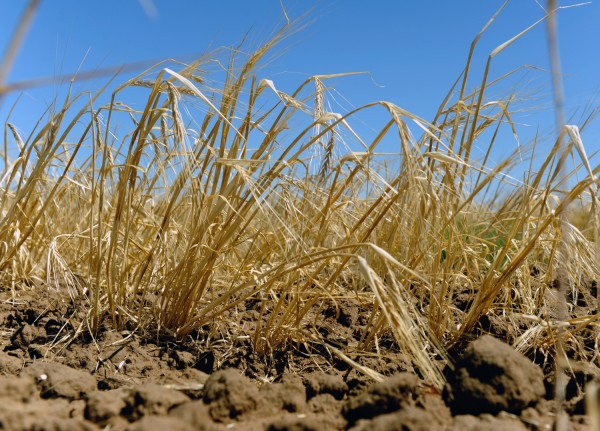Drought in Europe intensifies

The long-term rainfall deficit has had only a limited impact on harvests, but forecasters warn that a new heat wave could sharply worsen the situation in France, Germany and other regions of Western Europe
European crops have been experiencing a shortage of rain for almost the entire current growing season. So far, production has suffered moderately: serious losses were only noted in Germany in early spring, and in France, farmers are reporting similar risks. In other parts of the continent, drought has been episodic, without causing significant damage.
The driest regions are France and Germany: soil moisture reserves there are critically low. Moisture deficits are also recorded in most of the Iberian Peninsula, Italy, the Balkans and Ukraine. An approaching ridge of high pressure is expected to maintain partly cloudy weather until the end of June and, possibly, extend into the first ten days of July, exacerbating the problem.
In early June, Germany received a short respite thanks to rains that improved the topsoil, but this is not enough to restore rivers and reservoirs. France, on the other hand, has not felt any significant relief, and the recent “breath of moisture” may be temporary.
With the strengthening of the anticyclone, daytime temperatures are expected to rise to +30…+35 °C, which will accelerate evaporation and increase stress on crops and livestock. Although the jet stream prevents the weather block from becoming extremely persistent, even moderate heat in the absence of rain will quickly dry out the soil.
The risk zone covers the territory from Great Britain through France, Germany and Benelux to Spain, Portugal and part of Italy. Spain and Portugal rely on irrigation and have sufficient winter water reserves; Italy is also relatively protected. In France and Germany, on the contrary, water reservoirs have run dry, and the cultivation of grain, oilseeds and sugar beets directly depends on imminent precipitation.
In the lower reaches of the Danube and in the Balkans, crops without irrigation already need significant rainfall, although the scale of the problem there is still smaller. Nevertheless, France and Germany remain the main candidates for a noticeable decrease in yields, so the weather situation in these countries will be monitored especially closely.
For almost 30 years of expertise in the agri markets, UkrAgroConsult has accumulated an extensive database, which became the basis of the platform AgriSupp.
It is a multi-functional online platform with market intelligence for grains and oilseeds that enables to get access to daily operational information on the Black Sea & Danube markets, analytical reports, historical data.
You are welcome to get a 7-day free demo access!!!
Read also
Abbey Commodities – General Partner of BLACK SEA GRAIN.KYIV-2026
Black Sea & Danube Barley Market at a Turning Point: Demand Pressure and Regi...
US Supreme Court rules Trump’s emergency duties illegal
Mercosur: Protective measures for European agriculture
US makes concessions on pulses in new trade deal with India
Write to us
Our manager will contact you soon



